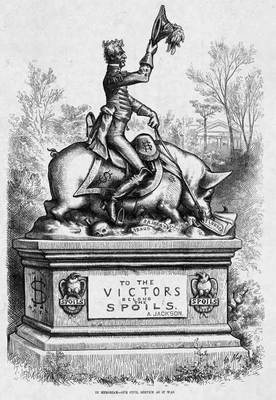The author of the book Who Governs? was
A) C. Wright Mills.
B) Robert A. Dahl.
C) Richard H. Rovere.
D) Spiro Agnew.
E) Thomas Jones.
B
You might also like to view...
Which of the following statements characterizes how the strategic voting model of judicial decision making differs from the legal and attitudinal models?
a. In the strategic voting model, judges see themselves as strategic actors in a larger political environment. b. In the legal model, judges are concerned with how the other branches of government will react to their decisions. c. In the strategic voting model, judges follow their personal policy preferences. d. In the attitudinal model, judges are concerned only with case precedent.
The belief that conflict is fundamentally a consequence of inequality and exploitation is most closely associated with
a. realists. b. constructivists. c. Marxists. d. Hans Morgenthau.
During the 1830s public servants and officials were widely percievd to be uniqualified. What practice reinforced that perception?

A. The public voting for candidates based on religious affiliations.
B. The president rewarding political supporters with appointments to desirable positions.
C. The federal government recruiting volunteers to serve abroad as ambassadors.
D. Legislators awarding government contracts to the lowest bidders.
Cynthia wants to do research on an online gaming site. In order to interact with its members, she joins the group and posts the outline of her project on the site's board. She was quite excited to find 10 new e-mails in her inbox pertaining to her research that day. Cynthia began the interviewing process but became aware of the lack of response from the interviewees as the days went on. This is a disadvantage to what type of interviewing?
A. intensive B. synchronous C. asynchronous D. question and answer